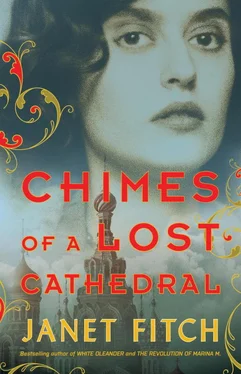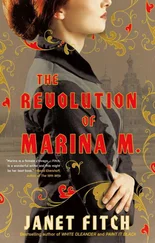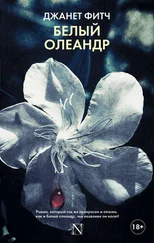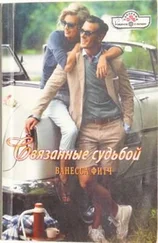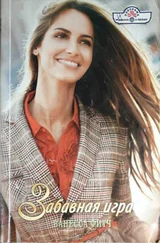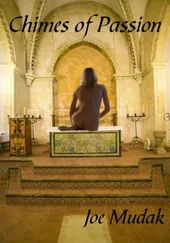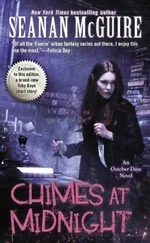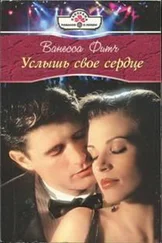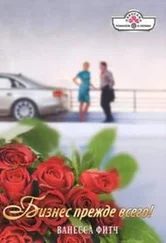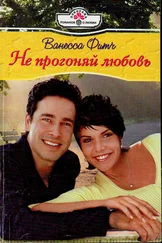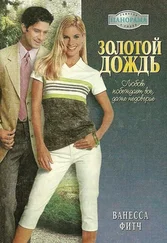I tried the doors. It was like rapping on panels for a secret entrance. One door was locked, the second nailed shut, but I knew people got in there somehow. Success came in the form of a modest, almost invisible entry at one side of the yard, its wood weathered to silver. I slipped inside.
The cold darkness immediately wrapped us in its ghastly embrace, a zoolike smell. I hesitated a moment—Iskra heavy in her sling—and reached through the slit in my skirt for Kolya’s gun, held it against my leg. I was by no means the only one who’d found this door. As I wound my way through the decimated pantries and storage rooms, the stink assaulted me. Everywhere the tooth of wood scavengers had made its mark, gnawing away doors, cabinets, furniture. Light fingered the broken windows on the front landing, dust motes hung in its rays, as still as death. The marble of the grand staircase rose as pale as a nude in the gloom. How cold it had been that winter—even now, its chill was just this side of a grave. I ascended slowly, listening. Iskra talking to herself in her sling. Shhhh… I jiggled her.
Last year, the abandoned mansion had just felt empty, but now it seemed occupied by something that skittered in the corners of my eyes as I walked soundlessly, tiger-footed, through the dusky rooms of the bel étage. Shattered bits of upholstered furniture lay across the elegant parquet, or what was left of it—half had been pulled up, darkness gaping through from the next level. I had to be careful in the gloom not to take a misstep and break my leg.
Someone had harvested the frames from the couches and left the springs and wadding like so many slaughtered sheep.
Footsteps. I halted, listening with every hair on my body. Light footsteps running down a corridor. His name jumped to my lips— Kolya! —but I stopped myself from calling out. Those were not his feet. I wrapped my fingers around the revolver’s grip, slid off the safety. A sensible person would leave—a sensible person would not have entered this desolate place—but I’d long dreamed of this mansion, the perfect hideout, derelict as it was. I remembered the door, flush with the wall. I had to know if he was here. My hands were sweating despite the cold, sweat ran down my back into my homemade drawers. The baby bulky in her sling. I crept toward the small boudoir, that jewel, feeling the wall for the giveaway crack.
There it was again, the sound of running steps. Cats? I shuddered to think rats.
There. I had found it, not by sight but by touch, the seam in the wall, and pushed it open, this room where I’d spent those four mad days of grief, my passion blindly bounding, wounded and dripping blood like an arrow-shot deer.
The dirty windows permitted a dull light, the room smelled of smoke. Its yellow wallpaper had been charred black by fire, lit not in the fireplace but right on the floor against the plaster. The corners of the room were littered with civilization’s shards and refuse, a torn mattress heaped with rags. I was surprised to see the little chandelier yet hung from the ceiling, as well as a few of the paintings. Hadn’t anyone thought to sell them?
The rags moved. I practically shot my own foot off. Not rags but children. Huddled together in the corner like a clutch of hedgehogs, three children with gray matted hair and filthy faces the color of their rags, watching me. Listless, inhuman, their eyes the only clean parts of them. I heard running in the corridor, light feet fading away. “Don’t be afraid,” I whispered, my heart somewhere in my neck. “How long have you been here? Are you alone?” They stared at me as if they’d been deafened by a blast.
Children living alone, burning things in this room, and there were probably more, but these, unlike their more able comrades, hadn’t the strength to run. Sick, feverish—these poor little beasts. They needed water, food, medicine—everything I didn’t have. I was raked by my own pure helplessness. I put the gun away. The children looked about seven or eight, maybe nine, hard to tell, their clothes so ragged, and they were so malnourished, it was impossible to even guess if they were boys or girls. “Are you hungry?” I said. “Food?” I put my fingers to my lips but they just stared.
I took the bread I had in my pockets and broke it into pieces, held it out to them. I would run low soon myself, but I was strong, and these children might not last the night. Varvara would say I’d be better off feeding their stronger companions, the ones who stood a chance. Yet I couldn’t bear to leave them with nothing. They just stared and stared—those glittering, feverish eyes. They didn’t even try to take the food. I didn’t want to get any closer to them, with their matted hair and grimy hands. Jesus kissed the lepers. He washed their feet . Scalps patchy from some kind of mange. But I couldn’t just throw chunks of bread at them like they were animals. I bent down and I pressed the pieces into their dirty, dry, hot hands. I couldn’t show how terrible I found them, disgusting and frightening and hopeless. “Eat, children,” I said in my most musical voice. “You need to eat now.”
They ate, slowly, mechanically, not even noticing, as if mesmerized by my appearance in their filthy dreams. One of them—a boy, I could tell now—crawled forward from the pile of rags and kissed the hem of my skirt. His shining eyes. What were they seeing?
He knelt and crossed himself. The other children followed suit.
It wasn’t me and Iskra they thought were standing before them, but a visitation of the Virgin and Child.
After the initial horror at their mistaken awe, I felt the urge to give them what they wanted, and if it was blasphemy, so be it. I who had nothing could at least give them that. I could only imagine what Genya would say about what I was about to do.
I made the Ionian sign of benediction over their scabby heads, right hand raised to radiate energy, the left below to collect it, and blessed them with all the somber grandeur I could manage. “Rest and grow strong, little ones,” I said, improvising Her lines. “I see you, day and night. I watch over you. I’m there when you sleep. I weep for your suffering, little lambs, my holy ones. I love you so… very much.” My throat closed. I didn’t know whether I could go on, it was such a disgraceful act. But they were children, and their loneliness must surely be as terrible as their hunger, their disease. “When you close your eyes, I’ll be there watching over you, even if you don’t see me. Don’t be afraid. God bless you and keep you.”
And then I had to go, to fly, before I started sobbing. Out in the dark corridor, I heard the scuffling of feet and the particular hush of held breath all around me. The other orphans, the stronger ones, were waiting for me to go. “Get them water, boiled if you can. And good luck to you all, children.”
I tried to remember the name of the man I was supposed to see at Petrocommune— Gogolinsky? Gogolevsky? I used to have a perfect memory, but after my visit to the yellow mansion my wits had fled. I barely noticed where I was walking. This was what had happened to our beautiful revolution—children living like animals in abandoned buildings. They rode between trains, begged at stations. I thought our purpose was to protect the weak from the strong, not create some desperate Darwinian culling of the herd. Oh, those quaint old-fashioned virtues of mine.
To our leaders, the spacemen, everything that made the revolution more secure was good in the absolute. If it strengthened the revolution, it was good, and if it weakened it, it was the enemy. I knew that’s what Varvara thought. But the truth was, the weak could only weaken things, taking strength from the strong. They couldn’t help to build a revolution. And yet, this was why the revolution had occurred. To help the weak. The strong would always take care of themselves, but what place in the great machine was there for ongoing suffering, for starving, abandoned children? Their pitiful lives too much of the present, this terrible moment, which was supposed to vanish. I knew one was supposed to lift one’s eyes to the glorious future, and not focus on present suffering, but what of these children? The unfortunate baggage of history. Were they to quietly starve to death, die in the walls like rats? Everything that struggled weakened the revolution. My own heartache, my tears weakened it.
Читать дальше
